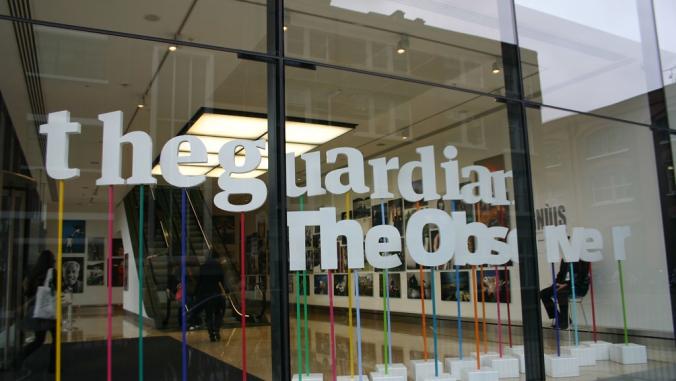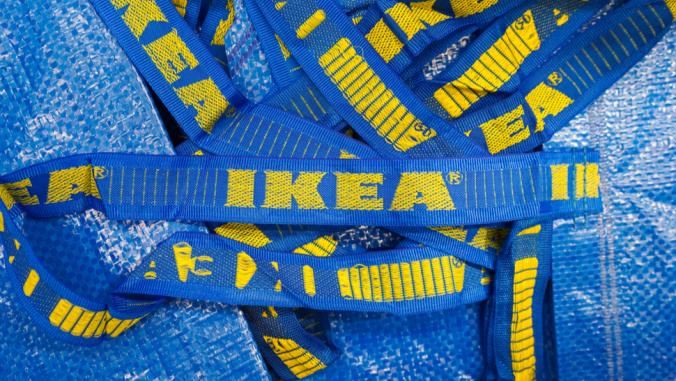Eco-operation: why your climate strategy is central to wooing millennials
Who would have thought the 'me me me' generation is all about the environment?

As an avocado-loving, debt-ridden, fully paid-up member of the millennial generation, it probably won't come as a surprise that I care about issues such as climate change, social justice and Trump in the White House.
So do my friends. And friends of friends. And cousins. And siblings. In fact, take a straw poll of pretty much everybody I know ages 15 to 35 and climate change will be up there as one of the big issues they really care about.
Sure, many of us also care quite a lot about Instagram, or a good sans-serif font, or where our next glass of frosé will come from, but when you really get down to it the big issues like climate change are top of the agenda. We're actually quite serious souls at heart — why do you think Club 18-30 is rumored to be going down the pan?
But you don't have to take my smartphone-addled brain for it: I've got the stats. Last week U.S. think tank Pew Research Centre released the results of a survey of Millennial Republicans — defined as those born between 1981 and 1996 and members of the GOP. It found "significant divide" between that younger cohort and their party elders on climate issues, with more than a third of millennials in the GOP believing the earth is warming mostly due to human activity, double the share of their Baby Boomer counterparts.
A wider study, released in March by Pew, found that 65 percent of all U.S. millennials say both that there is solid evidence of global warming and attribute this primarily to human activity — the only generation for which this viewpoint has a clear majority. And an MIT study found that millennials self-identify as climate conscious, with most believing they care more about protecting the environment than older generations. It is safe to assume these trends are replicated on this side of the Atlantic.
I rang Geoff Dembicki, Canadian climate journalist and author of "Are We Screwed? How a New Generation is Fighting to Survive Climate Change," to get his take on the matter. "For 20 or 30 years, we have talked about climate change as a distant, abstract threat," he told me. "But for millennials and anyone younger, there's a realization that we are going to start seeing the scary impacts of climate change in our lifetimes. And that really does change your mindset. It goes from being a wonky scientific debate to a question of your very survival."A Pew study found that 65 percent of all U.S. millennials say both that there is solid evidence of global warming and attribute this primarily to human activity.
As millennials rise the career ladder, they swiftly are becoming more indispensable both as a potential workforce and core spending group, and how your company communicates its climate strategy could prove a key influence over whether they plump for you or a competitor. Companies are starting to talk more openly about sustainability and carbon reduction, but fewer are doing so in a way that will grab the attention of a millennial audience.
Lyft, the ride-hailing app that is an archrival to Uber, is one of the few that gets it. Last month, it announced all of its journeys would be carbon neutral, thanks to a new carbon offset scheme funded by a multi-million dollar investment.
In 2016, Pew Research found that the average median age of an Uber user is 33, with the youngest group in the survey, 18- to 29-year-olds, leading ride-hailing usage at 28 percent. Most users also live in cities. Both these demographic qualities — young and urban — map directly with those most concerned about climate change. And whatever you think about offsetting schemes, it's a big, bold move from Lyft. Crucially, it's also both easily explainable and offers customers a feel-good factor that Uber's efforts, which include funds for drivers to switch to cleaner cars, simply don't offer.
Others are cottoning on to the importance of a good climate story. A few months ago ABInBev, the drinks giant behind beer brand Budweiser, spoke to BusinessGreen about how its young consumers are pushing it to take an "aggressive and inspirational" position on climate change. Here's what the firm's CSO Tony Milikin told me: "They are 20-35 years of age — that's the heavy block — and guess what? They are demanding greener, they are demanding more sustainable products. We know they are going to choose a brand over another brand on sustainability track record. We know they are willing to pay more for a sustainable product versus one that's not. And we also know that these millennials with their discretionary incomes are investing in green companies."
That's part of reason why all Budweiser beers are sporting a label proclaiming that they are made with 100 percent renewable electricity. It's all part of the story they are trying to tell that they are the greener, cuddlier, altogether more friendly company than that other beer maker on the next shelf. And they are telling it in a digestible, media-friendly way that millennials quickly can grasp.Others are cottoning on to the importance of a good climate story.
Of course, you can't do this if you don't have the strategy to back it up. There's no use putting out a load of glossy videos or snappy slogans if you are still being mobbed at every AGM by campaigners convinced your climate strategy is a cop-out. Shell, I'm looking at you.
As Dembicki puts it: "There's a low tolerance for companies that say they are going to do something great for the planet and then fail to back that up."
But for firms with a stellar sustainability strategy — this applies to all companies signed up to the Science-Based Targets Initiative, by the way — then you are missing a trick if you are not out there selling it to those millennials that want to come and buy from, or work for, a company just like yours.
It's not enough anymore to walk the walk on sustainability. You've got to go out there about shout about it, preferably backed with some millennial pink branding, and a sans serif font or two.
This story first appeared on:





